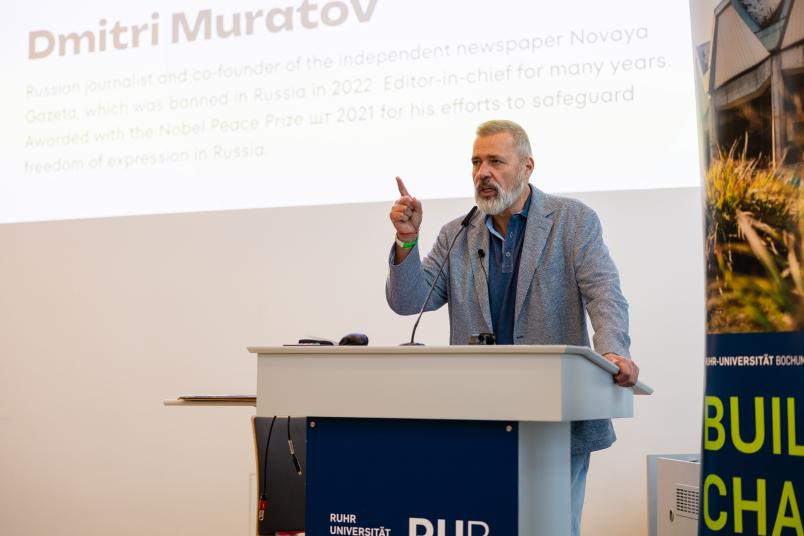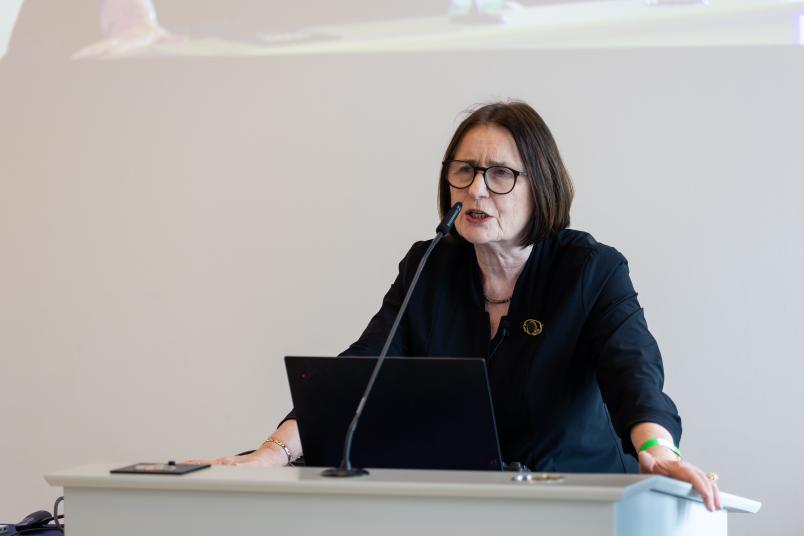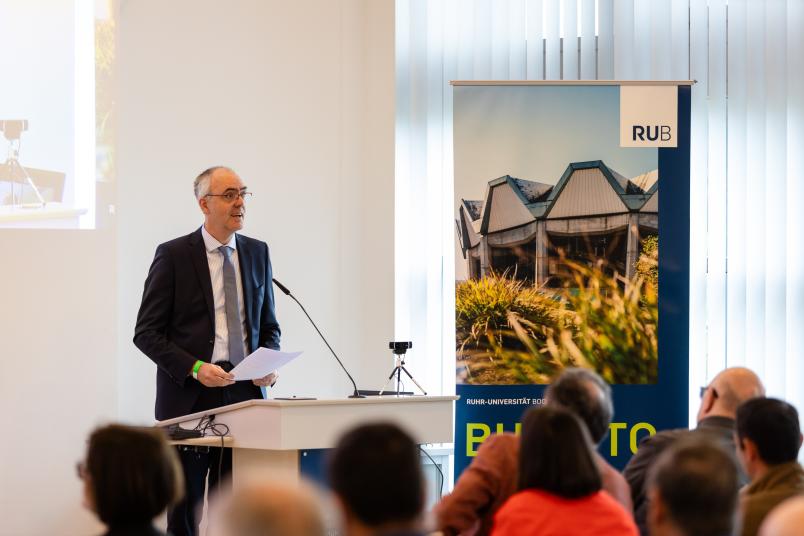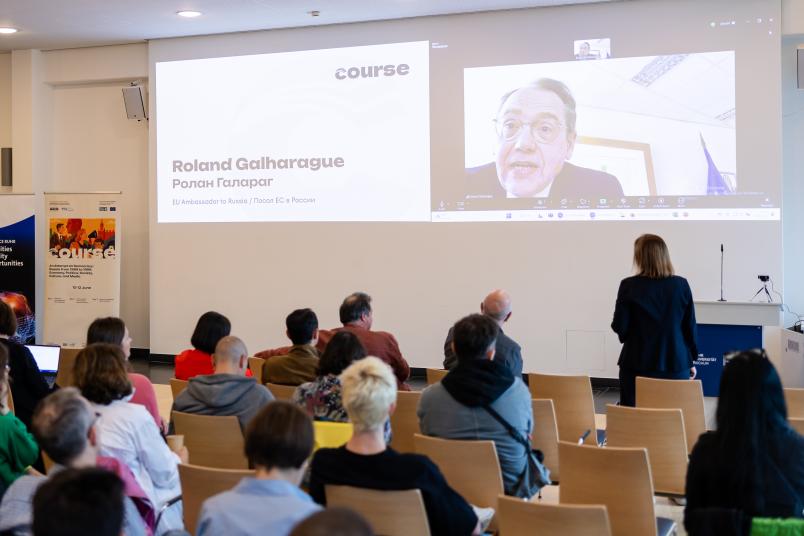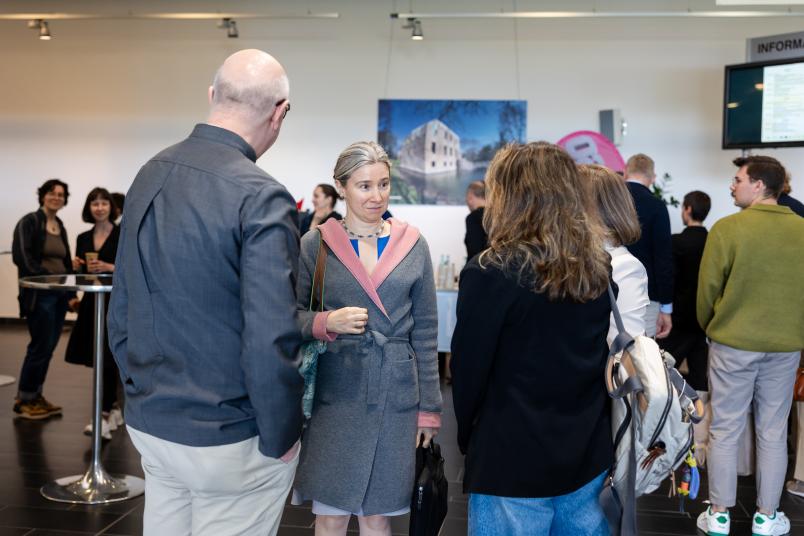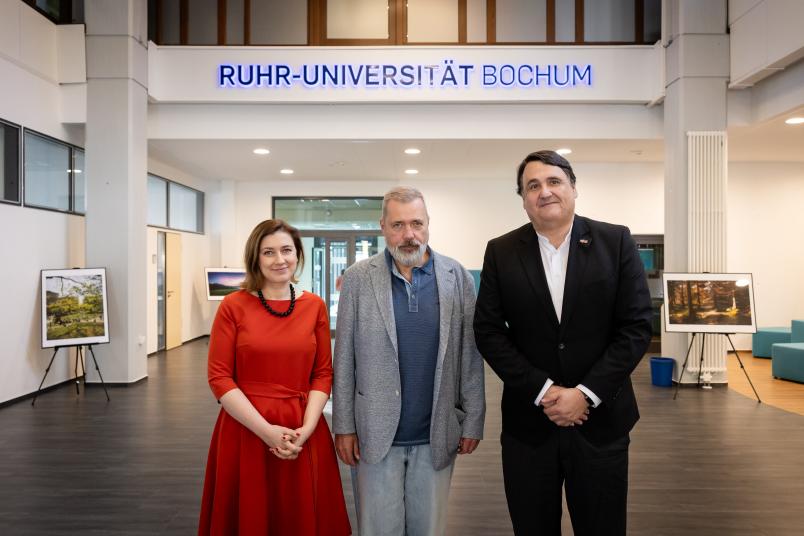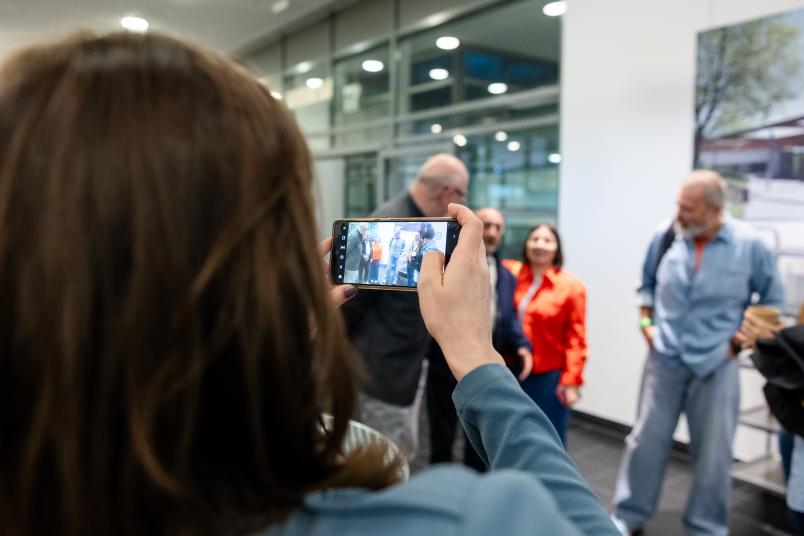Conference
The historical roots of authoritarian developments
Russian human rights activists, academics and Nobel Peace Prize winners discussed Russia's development since the collapse of the Soviet Union.
“With this conference, we are stimulation the international dialogue on democracy, culture of remembrance, and authoritarian regression” - with these words, Vice-Rector Prof. Dr. Achim von Keudell opened the conference “An Attempt at Democracy: Russia 1989-1999” at Ruhr University on 10 June 2025. He moreover underlined the social responsibility of universities to promote this discourse. EU Ambassador Roland Galharague welcomed the participants of the three-day event live from Moscow.
Renowned personalities from the fields of political and social science, journalism, literature and human rights work attended the conference, including political scientist Ekaterina Schulmann and journalist and Nobel Peace Prize winner Dmitry Muratov, with whom Rector Prof. Dr. Martin Paul also met in private to exchange views.
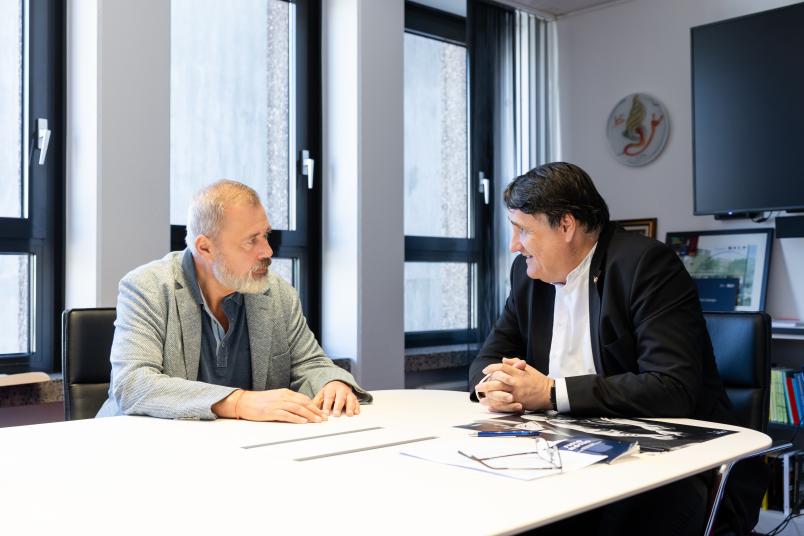
Nobel Peace Prize winner Dmitry Muratov (left) and RUB Rector Martin Paul exchanged views on the sidelines of the conference.
The talks focused on Russia's development since the collapse of the Soviet Union. The speakers emphasized that historical processes should not only be researched, but their consequences for the present and future should be openly discussed – especially at a time when democratic principles are under pressure worldwide.
In her lecture “10 years of fighting for memory”, Irina Scherbakowa reported on her work in the human rights organization “Memorial”, which she co-founded and which was banned in Russia. “Memorial” was awarded the Nobel Peace Prize in 2022. For years, Scherbakowa and her colleagues worked on the Soviet and later Russian history of violence, giving a voice to millions of nameless victims, creating memorials and publishing studies. Today, Scherbakowa says: "We know most of the truth, the big picture. How the system preserved itself." And yet the academic reappraisal of history met with little interest among the people; nostalgic memories of the former greatness and stories of the superpower were more effective. One decisive step was missing: officially declaring the Soviet Union a criminal state. "There is no recipe for coming to terms with the past. We are currently in the dark, but it is possible. There is a demand for it. We were almost this far in 2010."
“Your commitment is invaluable in today’s world,” said von Keudell, thanking all the speakers. “You make a courageous and important contribution to the critical examination of authoritarian developments, the defense of democratic values, and the visibility of civil society perspectives.”
Organization and funding
